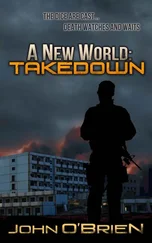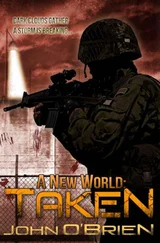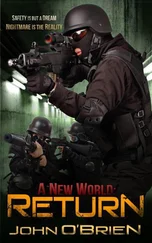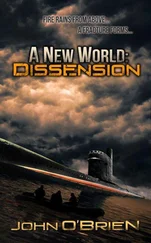“I think this needs to be said, and it doesn’t indicate my position on the matter, but if we decide to ignore the order and it turns out to be a legitimate one, we are, in effect, conducting a mutiny or, at the very least, disobeying a direct order,” the XO states.
“That’s an important point. Thank you, XO,” Leonard says.
The officers glance around the room at each other, trying to gauge the other’s reactions.
“It’s important that each and every one of us votes according to their own thoughts and beliefs. Don’t fold in with the rest if you believe otherwise deep down. Because of its importance and possible ramifications, this matter is open for free discussion,” Leonard says, looking at each officer.
More glances around the room but no one says anything.
“Okay, gentlemen, let’s take it around the table and vote. Aye for disregarding the message and continuing on to San Diego and nay for accepting the orders and proceeding north.”
“Aye.”
“Aye.”
“I would like to see the message validated but understand the reason why we can’t. Aye,” the engineering officer states.
“Captain, what if the messages prove valid?” the XO asks.
“Then we’ll apologize,” Leonard answers.
“What will we do once we reach San Diego…with regards to the messages?”
“If we decide to proceed in that direction, we’ll have to base that on what we see,” Leonard replies.
“We’ve never disregarded an order before. This could cause some concern with the crew. They may see the reinstituted government as their best chance to see their families again,” the XO continues.
“I realize that. Do you believe the messages to be valid ones?”
“No. I think they’re bullshit, but I have to bring up how the others may see it and how we’re going to deal with it.”
“Agreed. And I’ll be briefing the crew on our decision regardless of what that happens to be,” Leonard says.
“Well, sir, you know how I feel. Aye.”
The vote continues around the room resulting in a unanimous ‘aye’ vote.
“Okay, gentlemen. We’ll continue to San Diego. I still want to check out the LA basin area, but we’ll remain submerged unless there is an absolute positive indication that survivors exist onshore. And we’ll maintain radio silence. No further morning and evening calls on the sat phones or messages directed inland. I’ll make a general announcement when we’re finished here. Is there anything else we need to talk about?”
“Repairs, sir. We could use some time. I realize we may not be able to use the dry dock, but we will need parts,” the engineering officer states.
“And resupply,” the XO says. “We are doing okay at the moment, but we’ll need to take on supplies…mainly food stores.”
Several faces pale at the thought of going ashore and perhaps needing to enter into a supply facility again. The memory surfaces of those they lost — and how they lost them — at Bangor.
“How far can we go if we can’t get ashore for whatever reason?” Leonard asks the engineering officer.
He’s met with a shrug. “It depends, sir. We could break down in a day or go for months. It’s hard to say. At a minimum, I suggest we replace our scrub filters.”
“And the food?” Leonard asks the XO.
“We have a few weeks if we ration. We can send Chief Krandle ashore and find some stores that don’t put them at too great a risk. That would stretch our supplies some,” the XO answers.
“Okay. Make a provision list and we’ll see what we can do once we arrive. I’ll speak with Chief Krandle. Right now, let’s check on the LA basin and proceed to San Diego. Let’s begin rationing, but without the crew having to go hungry. I don’t think we’re at that point yet and there’s no use putting them in any greater discomfort than they already are. This news is going to put a measure of stress on them, however, I think our decision to check on our home port and families will be seen by most to be the correct one.”
“Sir, if I may?” an officer utters.
“Go ahead.”
“What about those with families elsewhere? I mean, they’ll want us to check on their families. As the XO mentioned, some will see these orders as a way to check on their loved ones farther inland. What I’m saying is that we need to give them something as to what we’re thinking in this regard.”
Several officers nod their heads at the logic. It’s a question Leonard has thought about more than a few times. It’s the one thing that could break the crew apart…or it could unite them together — their new mission to search for loved ones. Of course, they are restricted as to where they could search. Thoughts of Captain Walker’s group and their capabilities surface regularly. Deep down, Leonard knew there would be a time when the two joined together, but now this message has the potential to change that.
“Meet with your departments and gather a list of where their families are located. For the moment, let them know we will look into the feasibility following our arrival at home. Inform them of our limitations to check beyond the coastal areas, but that we’ll look into ways to search farther inland. Make sure that each knows that this is something we are only looking into, but that we can’t make any promises,” Leonard says.
No other issues are brought forth so Leonard adjourns their meeting. With a nod, each officer rises and departs. Leonard then makes a general announcement giving a synopsis of messages and detailing their plans.
Although anxious to get to their homeport, Leonard takes his time maneuvering the Santa Fe down the coast from San Francisco to Los Angeles. The coastline is more populous than that of the Oregon and Northern California shores. They explore Monterey Bay and the various inlets without finding any sign of surviving remnants of humankind. Leonard expected further communications; reissuing the orders and asking for confirmation of receipt, but the comm center remains silent since receiving their last message. The lack of communications only increases Leonard’s uneasiness about the validity of the message and, although still nervous about ignoring the order, he feels better about the decision he and his officers made.
The distance between the two big cities isn’t far but, with the slow speed Leonard dictated and taking time to investigate, it takes two days before they reach the Channel Islands to the northwest of the Los Angeles area. His plan is to swing wide of the Channel Islands and approach Long Beach directly from the west.
“Captain to the comm room,” the loudspeaker blares.
And there’s the message asking for confirmation , Leonard thinks, rising from his chair. I wondered when that was going to come in .
The Santa Fe picked up speed to circumvent the islands and is approximately midway across the Santa Barbara Basin when Leonard pokes his head in the small room.
“What is it, chief?”
“Sir, I’m picking up a very faint signal coming in on UHF guard. I believe I heard our name a couple of times, but it’s hard to identify clearly. Whoever is transmitting is either pretty far away or the signal is weak on their end.”
“Our end is good?” Leonard asks.
“Aye, sir. I’ve checked our equipment and it’s good.”
“How often are they transmitting?”
“That’s hard to say, sir. I’ve only picked up a couple of the transmissions and this last one is the clearest I’ve heard. However, it seems to be about every five minutes. Would you like for me to respond?”
“Let’s wait for the next one. If it’s getting clearer, then they are moving and getting closer. I doubt our speed makes much difference in five minutes. Put it on speaker but keep the volume low, please,” Leonard says.
Читать дальше












